Close UP
Nonprofit Organization Adovo ~High school and university students support technical intern trainees of their generation, aiming for "a society where people live and learn together"~
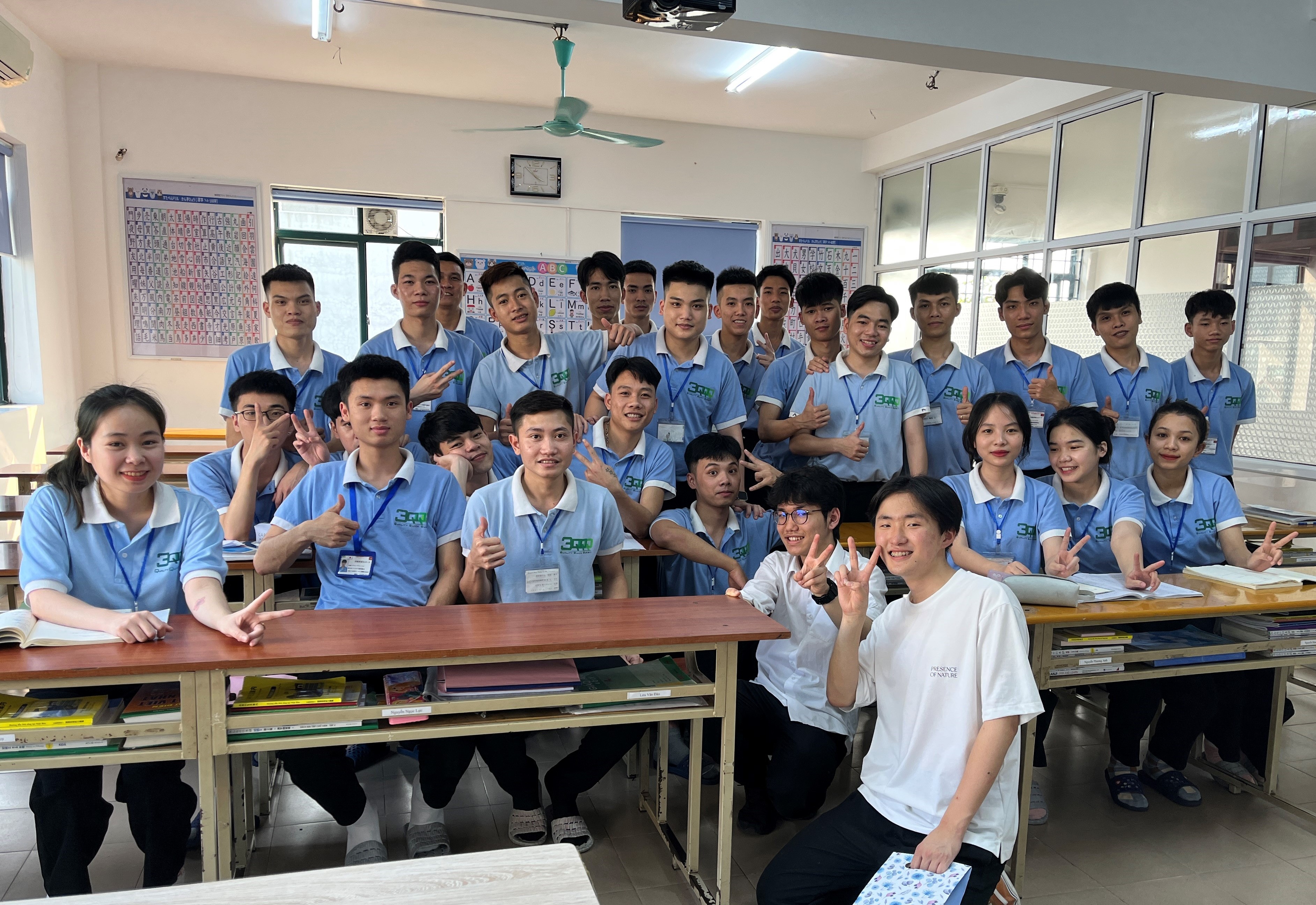
The NPO Adovo consists of high school and university students. Adovo's activities are centered on "Japanese language classes," "mingling and workshops," and, "public relations and awareness activities"; to make the lives of foreigners of the same generation who are working (or will work) as technical intern trainees in Japan, more enjoyable. The NPO Adovo has more than 120 members and has expanded its activities to include charters in the Kanto, Chubu, and Kansai regions.
We spoke with Mr. Shugo Matsuoka, the organization's representative, who started the group as a first-year high school student in 2020.
Mr. Mastuoka found that the technical intern trainees are of the same generation as himself and close to us.
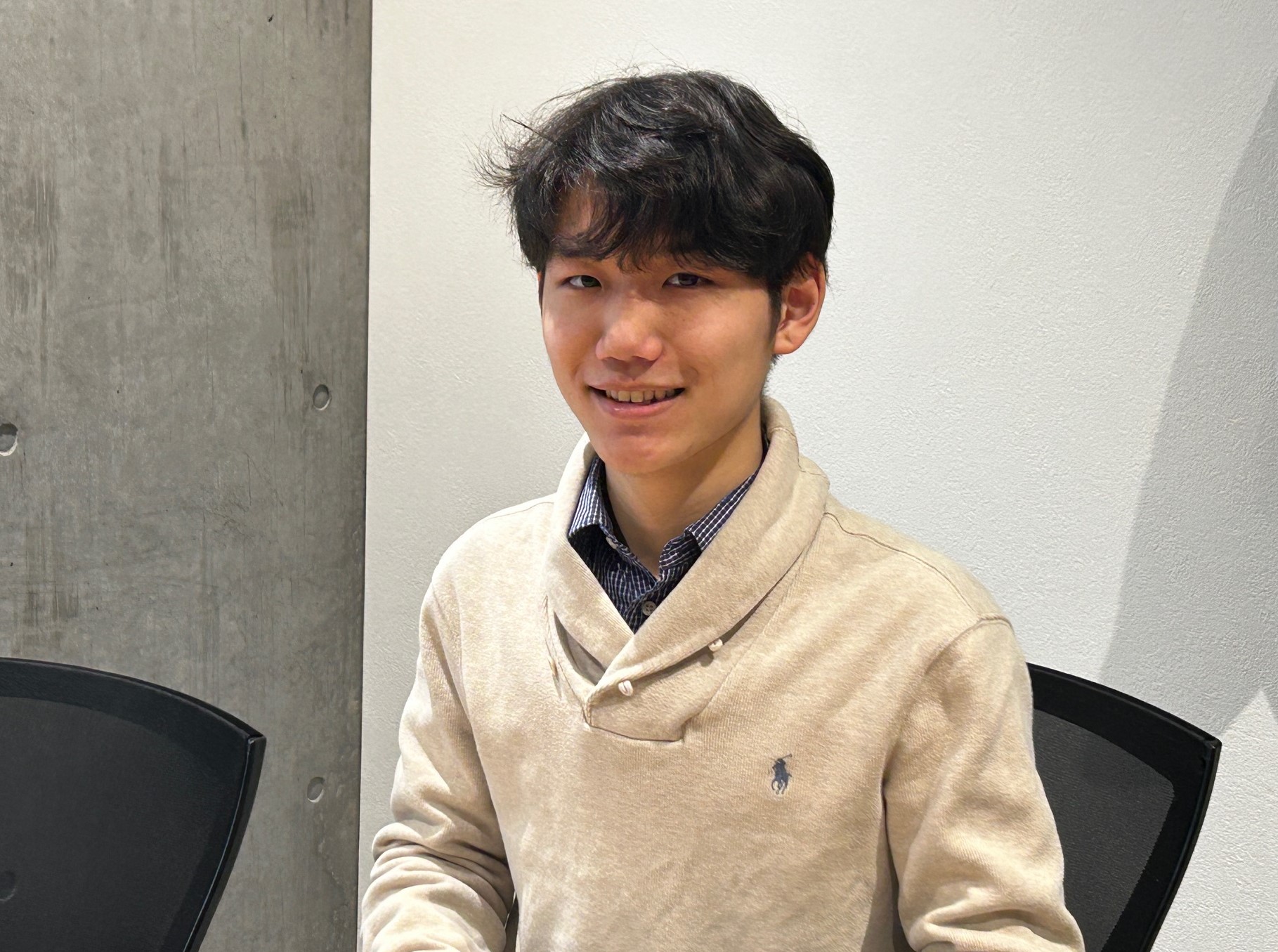
Mr. Matsuoka says that the impetus for establishing the NPO Adovo (hereafter Adovo) came when Vietnamese Buddhist nun Thich Tam Tri came to teach Vietnamese at his school as a guest instructor.
"Thich Tam Tri is the head nun of Daion Temple in Saitama, helping many Vietnamese technical intern trainees. I was shocked to learn that technical intern trainees from the same generation (as myself) were being mistreated. I knew almost nothing about technical intern trainees because I had never had the opportunity to get involved with them before. They make our clothes, food, houses, etc., so they are very close to us. There are several factories on the other side of the station where I live, and many technical intern trainees come (to work) there. (Their existence)was familiar to me, but I was still unaware of them at the time. I spent the next six months or so reading books and newspapers and doing a lot of research. I wanted to do something (for them), and I thought I might be able to do it by teaching Japanese, so I asked a friend of mine, and we started an organization together," says Mr. Matsuoka.
Mr. Matsuoka laughs because, at the time in 2020, it was during the COVID-19 pandemic, so schools had moved to online classes. There were no club activities either, and he had more time.
Adovo's philosophy is described as "a society where people live and learn together – tomo- iki society".
"I went to a combined private Buddhist middle and high school, and the phrase "tomo-iki" was the school's philosophy. This was the phrase that first came to my mind when I decided to start my activities. I think (tomo-iki) has the meaning of humbly accepting the other person's opinion and respecting the other person's position and thoughts."
The name of the organization, Adovo, is a coined word that combines the words adolescence and advocate, and they are boldly expanding their activities on the strength of their youth.
High school and university student members aim for "a society where people live and learn together."
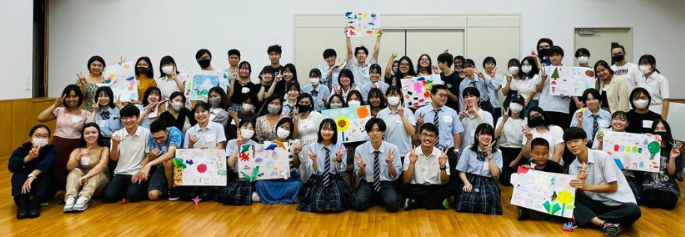
Adovo has 122 high school and college students from all over Japan and abroad as members. About 70% of them are high school students (as of February 2024). Many people join the group because they want to engage in international mingling. And, while balancing their studies and activities, each person aims to create "a society where people live and learn together".
There are currently seven teams in the organization. Members belong to one of the following teams: Kanto Charter, Chubu Charter, Kansai Charter, Seminar Committee, Mingling Committee, Japanese Language Class Committee, and Administration Office.
Adovo offers a wide range of activities for its members; for example, activities such as international workshops, mingling meetings, tourism planning, online workshops at dispatching agencies, and Japanese language classes. Members may choose activities based on their interests and concerns. Many members may think about the meaning of "a society where people live and learn together" in their own way, through this valuable experience; which is difficult to achieve in their normal school life. One of the members commented that one merit of this organization is that while its members support foreigners of their generation, the experiences also help members learn about themselves.
Adovo has a well-developed support system, including its e-learning training system and a library of teaching materials that can be used in Japanese language classes. These systems were created by Mr. Matsuoka.
"When joining an organization or participating in a particular activity, our members are trained through e-learning to acquire the necessary knowledge and skills. The training (program) is the pride of our organization. It took a long time to create it, but once it was done, everything moved efficiently."
Fun Japanese Language Classes, Learning That Comes from a Sense of Belonging to the Same Generation
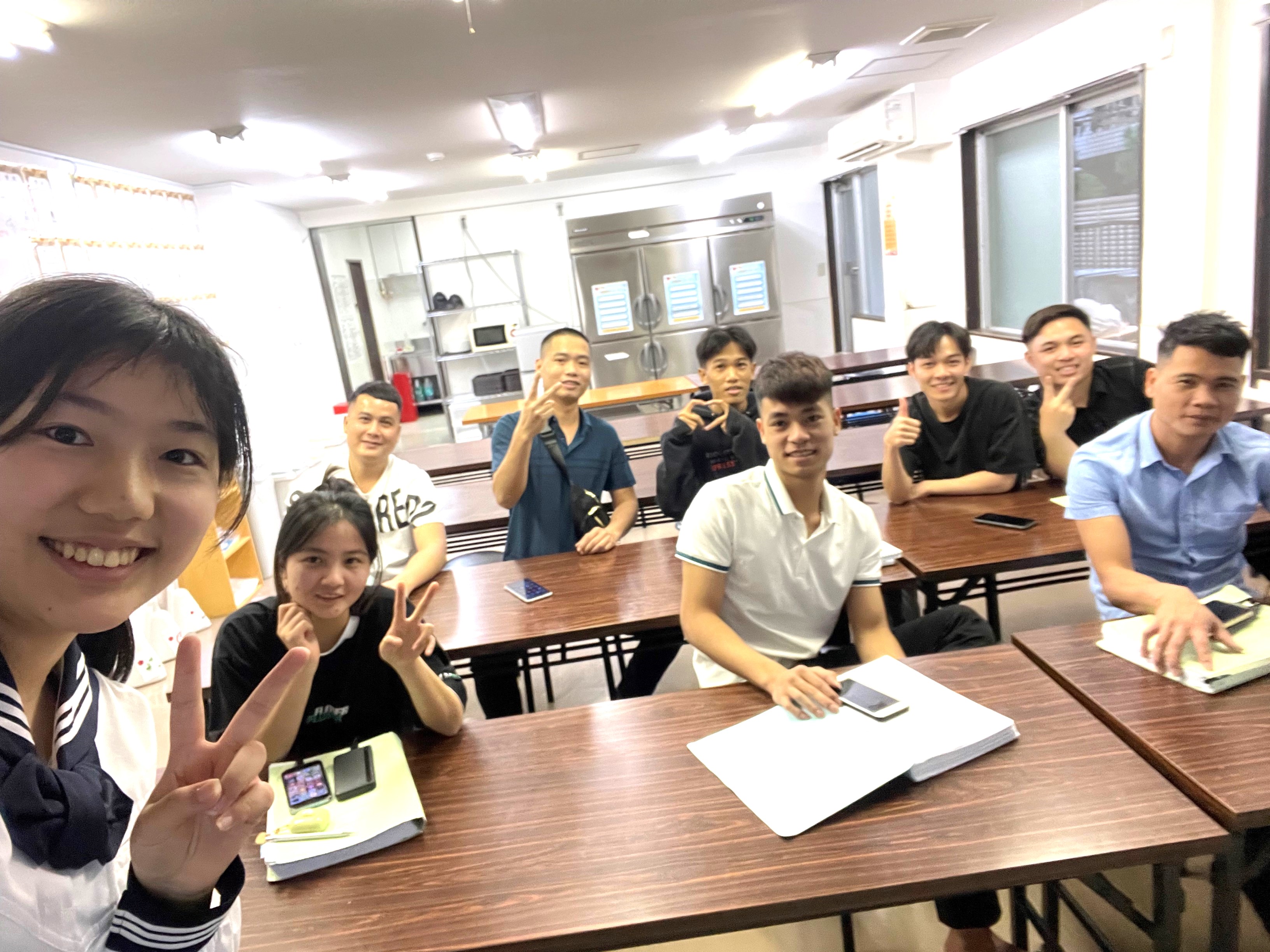
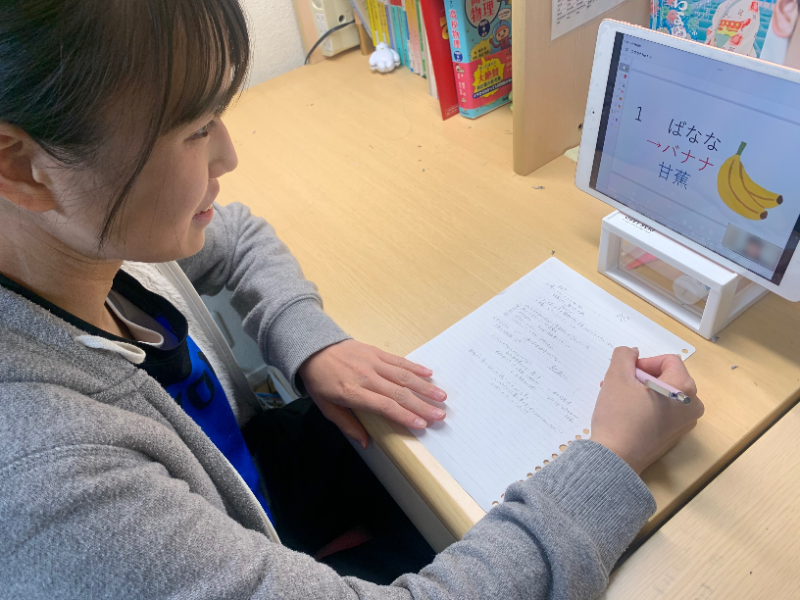
Japanese language classes are offered both in person and online. Classes are held at companies after work or at post-entry lecture centers. Online Japanese language classes are offered on a one-on-one basis almost every day. And technical intern trainees, including those in remote areas, may participate from anywhere. Sometimes they even have a good time chatting with each other.
"Approximately 70% of the technical intern trainees are in their teens and twenties. Adovo members are high school and university students, of the same generation (as the technical intern trainees), so we teach them Japanese as if we were teaching our friends. Conversations among friends are lively, and even those who are not accustomed to daily conversation become accustomed to it rather quickly. Some people worry that we are not qualified to teach Japanese, but the members of our team who are in charge take the time to attend seminars and training sessions.
Class content is also supervised by a Japanese language teacher. In Adovo's classrooms, we teach for communication, not for exams. We get involved as friends, going out to eat after class and hanging out on weekends."
The weekly classes are a fun time for both technical intern trainees and Adovo members. "Perhaps what the technical intern trainees are looking for more than Japanese language classes is friends. There are technical intern trainees who have been isolated in remote areas and other places, and one said to me - as they participated in Adovo's class - that they are glad to have Japanese friends. I think it is more important to strive together as friends, rather than to teach," Mr. Matsuoka says.
To ensure that technical intern trainees can come to Japan without anxiety.
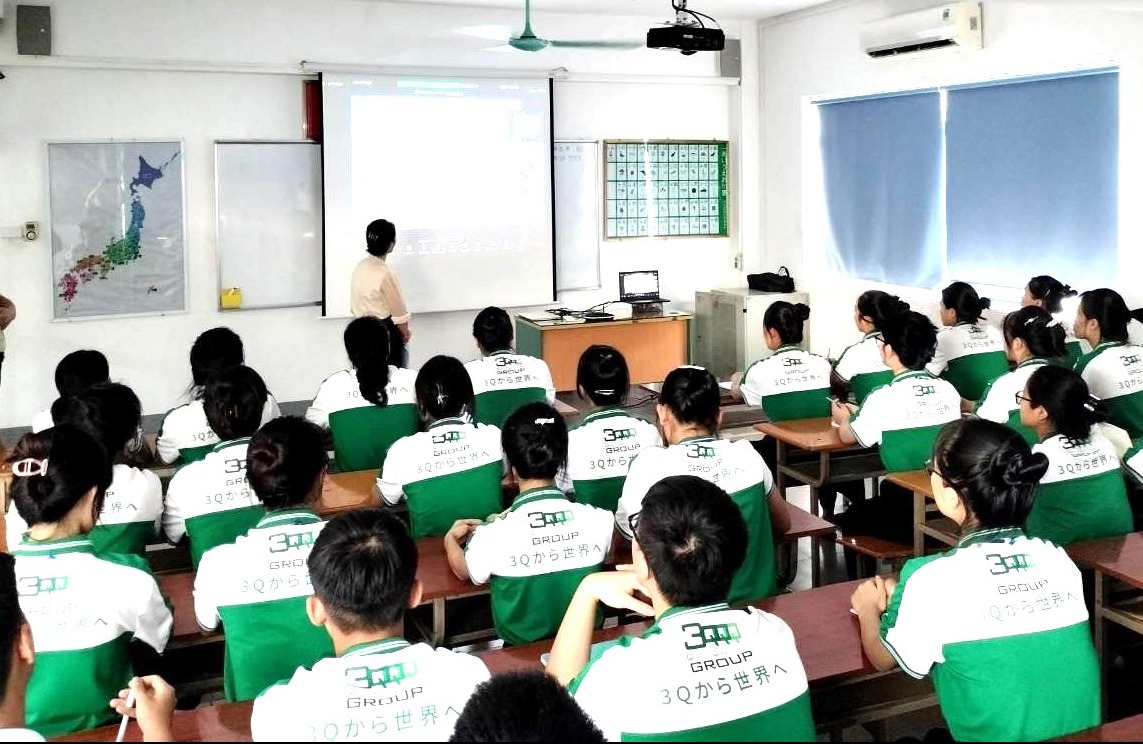
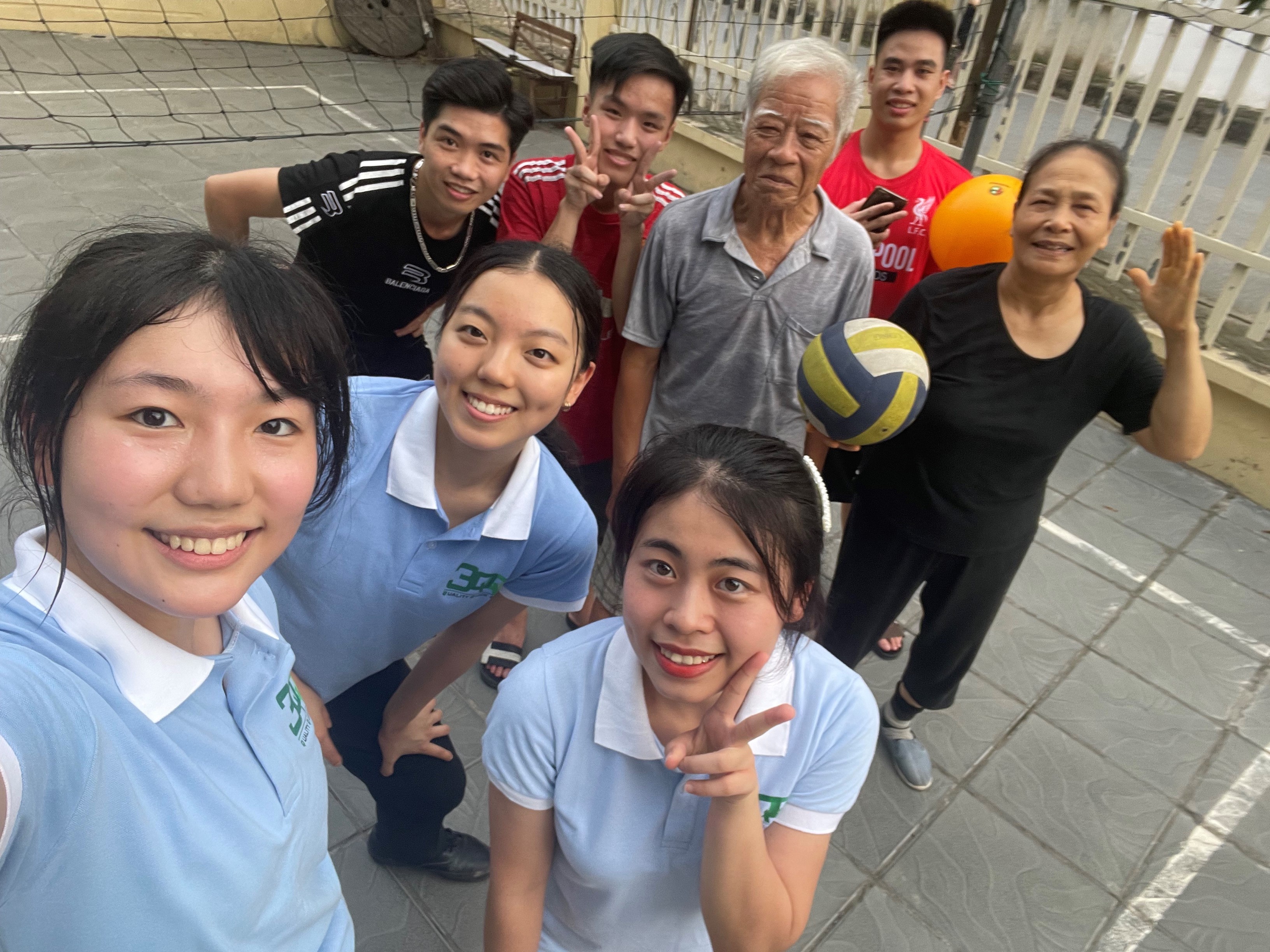
One of the causes of trouble with foreign nationals and technical intern trainees living in Japan is that they are unaware of Japanese culture and customs. Even the way they dispose of trash is different between their home countries and Japan. Before coming to Japan, technical intern trainees have the opportunity to study the Japanese language, customs, and manners for six months to a year at training centers of dispatching agencies. However, it is difficult to convey detailed nuances. Therefore, Adovo has started a pre-arrival training course. This initiative was started by Adovo members who wanted technical intern trainees to learn at least a little bit about Japan before coming to Japan, and for the trainees to look forward to living in Japan. Currently, this initiative is carried out in cooperation with dispatching agencies in Vietnam, Myanmar, Indonesia, and the Philippines, as well as with Japanese companies. But, it was a challenging process before it took its current form.
"We began by contacting dispatching agencies by international calls and e-mails. At first, we only got one response out of twenty, but now we are getting calls from their side. We have received positive feedback from dispatching agencies, saying that this is a valuable opportunity (for technical intern trainees) to interact with Japanese students of the same generation before starting work in Japan," says Mr. Matsuoka.
Adovo also sends its members to Vietnam to learn about the environment in which technical intern trainees used to live. This is a unique opportunity to live with technical intern trainee candidates at dispatching agencies in Vietnam.
"I believe this is the first attempt of its kind in Japan. The idea is to spend 24 hours together for two weeks. Some things can only be understood by living together, and some things can only be seen by living together. If we know the environment in which the technical intern trainees have grown up, we can understand them and reduce troubles beforehand."
Through his activities, Mr. Matsuoka is also experiencing "a society where people live and learn together."
Expanding Adovo's network, spreading the know-how of their activities, and the concept of "a society where people live and learn together" throughout the country.
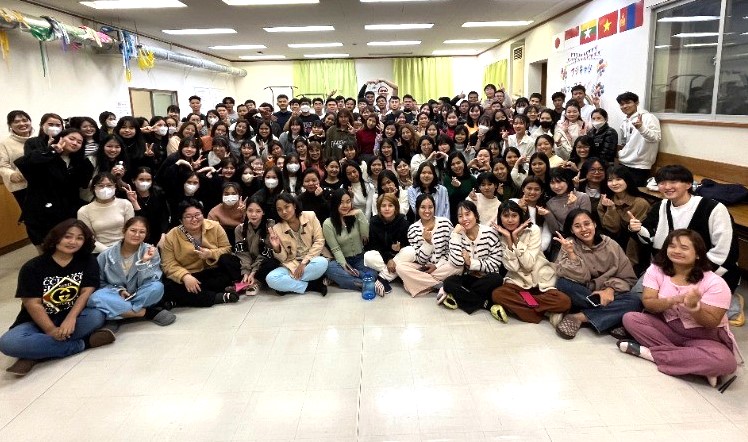
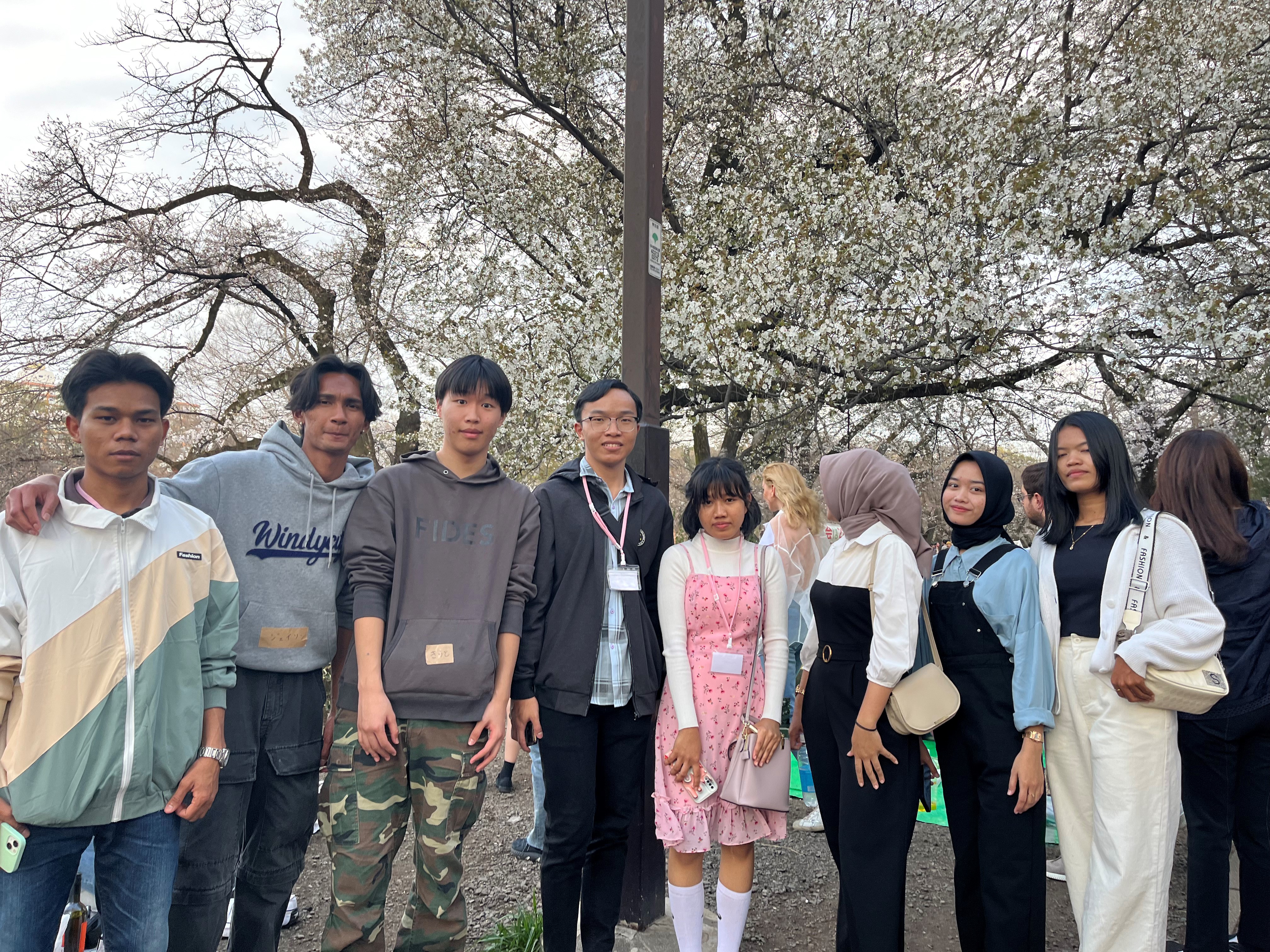
"I think Adovo is an organization that allows casual international mingling," says Mr. Matsuoka. The members' comments also indicate a full range of activities.
- "I was able to have many valuable experiences that I would not have had as a high school student, ordinarily."
- "Most of the members were of the same age group, so it was easy for me to communicate with them."
- "I thought it was just a group where I could interact with foreigners, but it was not. It was a very interesting organization that allowed me to experience various things such as social issues of foreign workers and their Japanese language education."
Mr. Matsuoka also speaks about Adovo's future efforts as follows.
"Among my generation, I feel that awareness of multiculturalism is gradually spreading. I hope to establish (Adovo's) chapters in various places in the future and to create a nationwide network. Even if it is not in the form of Adovo, I would like to expand a kind of expertise in these activities.
And in doing so, we want to continue raising awareness of ways to eliminate problems such as unexpected pregnancies among technical intern trainees. Pregnancy in Japan, where the language and customs are different, often leads to isolation. As part of the training at dispatching agencies, we will conduct regular pregnancy workshops that explain the costs involved in childbirth in Japan and contraceptive methods in cooperation with Mother's Tree Japan, a non-profit organization.”
As the number of foreigners living in Japan increases, more and more students are having thoughts about multiculturalism. If the know-how of Adovo's activities and the concept of "a society where people live and learn together" are passed on to high school and university students across Japan who support Adovo, and spread beyond them, the number of foreigners who may live in Japan with peace of mind will increase.
We received a message from Mr. Matsuoka↓
Adovo will be crowdfunding from April 15 through July 8.
We are seeking support to expand our local chapters nationwide and deliver support to more communities.
We hope you will join us in supporting our efforts to expand the foreign worker support program for high school and university students in their local communities nationwide!
For more information, please check this page.
